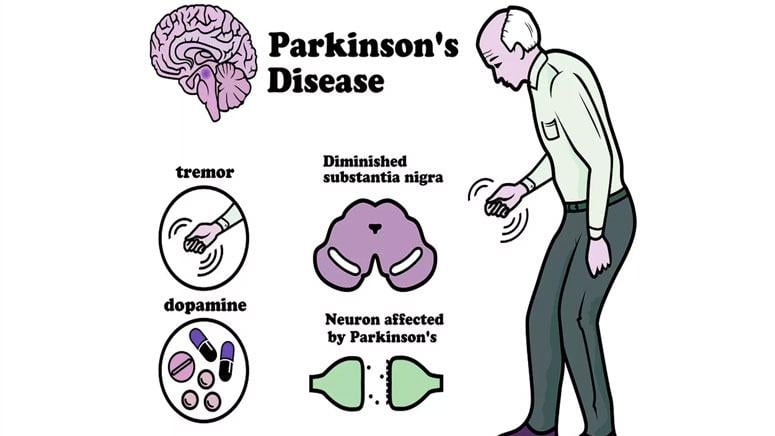Overview

Parkinson’s disease causes a slow decline of dopamine levels in the brain. This can lead to cognitive impairment and eventually death. Parkinson’s disease is one of the most common severe diseases globally that affects men and women, most commonly between the late 50s to early 80s.
Parkinson’s disease is the most common cause of dementia, affecting between 1 in 5 people over 65 years and affecting 3% of people living with dementia. It is a progressive disease that takes its toll on a person’s ability to move and function.
Parkinson’s occurs when the brain cells known as neurons are unable to produce dopamine. Parkinson’s disease is a neurological disorder that affects movement and control of the body. It causes difficulty in other aspects of life as well, such as learning and reading.
Some signs of Parkinson’s disease include:













